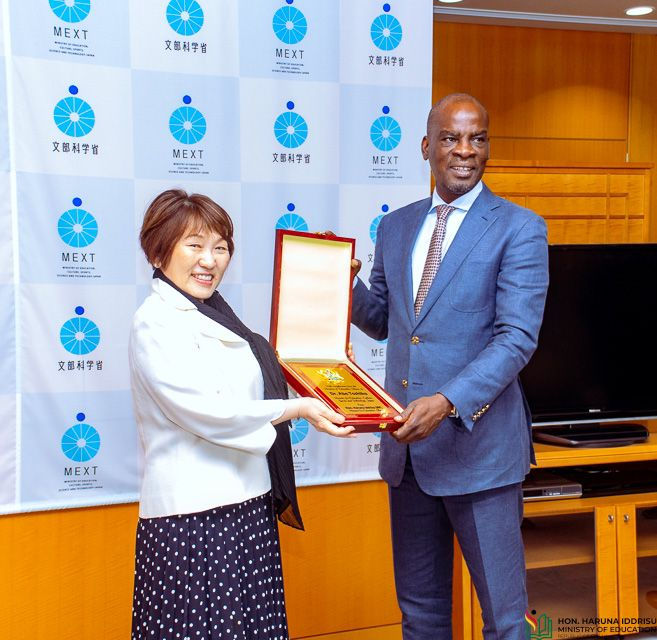Ghana and Japan forge landmark education pact to boost sustainability and digital skills
- Think News Online

- Jul 30
- 2 min read

Ghana and Japan have signed a groundbreaking bilateral agreement aimed at strengthening educational cooperation, advancing sustainable development, and equipping students with critical green and digital skills for the future.
The agreement, signed in Tokyo by Ghana’s Minister for Education, Hon. Haruna Iddrisu, and officials from Japan’s Ministry of Education, Culture, Sports, Science and Technology (MEXT), marks a major step forward in the two countries’ long-standing partnership in education.

At the heart of the agreement is a shared vision to promote inclusive, high-quality education, aligned with the global push for sustainability and technological transformation.
Key areas of focus include enhanced teacher training, the development of green competencies in Technical and Vocational Education and Training (TVET), and expanded access to Science, Technology, Engineering, and Mathematics (STEM) education.

Calling the agreement both “strategic and transformative,” Minister Iddrisu praised the initiative as a critical enabler of Ghana’s Education Strategic Plan (ESP 2018–2030) and its ambition to build a knowledge-driven economy.
He thanked the Japanese government and MEXT for their ongoing technical support and shared commitment to educational excellence, describing the partnership as a “joint contribution to global progress.”

Highlights of the agreement include:
Strengthened teacher development through training and joint curriculum design
Integration of green and digital skills into youth education for improved employment outcomes
Introduction of nationwide coding courses to boost digital literacy
Enhanced student exchanges and collaborative research at the tertiary level
Integration of Education for Sustainable Development (ESD) principles in schools and communities
Ghana’s prioritization of ESD, Minister Iddrisu noted, underscores its dedication to achieving the UN’s Sustainable Development Goal 4—ensuring inclusive, equitable, and quality education.

He acknowledged Japan’s global leadership in ESD, citing the UNESCO ESD Centre in Okayama and Japan’s track record of hosting key global forums on the subject.
The agreement builds on decades of Japanese support to Ghana’s education sector, including initiatives under the Japan International Cooperation Agency (JICA), the Sakura Science Exchange Program, and various teacher training projects.

Officials from both countries expressed optimism that the strengthened collaboration will deliver transformative results—empowering young people, fostering innovation, and creating more resilient education systems capable of meeting the challenges of a rapidly changing world.
Story by: Joshua Kwabena Smith








Comments